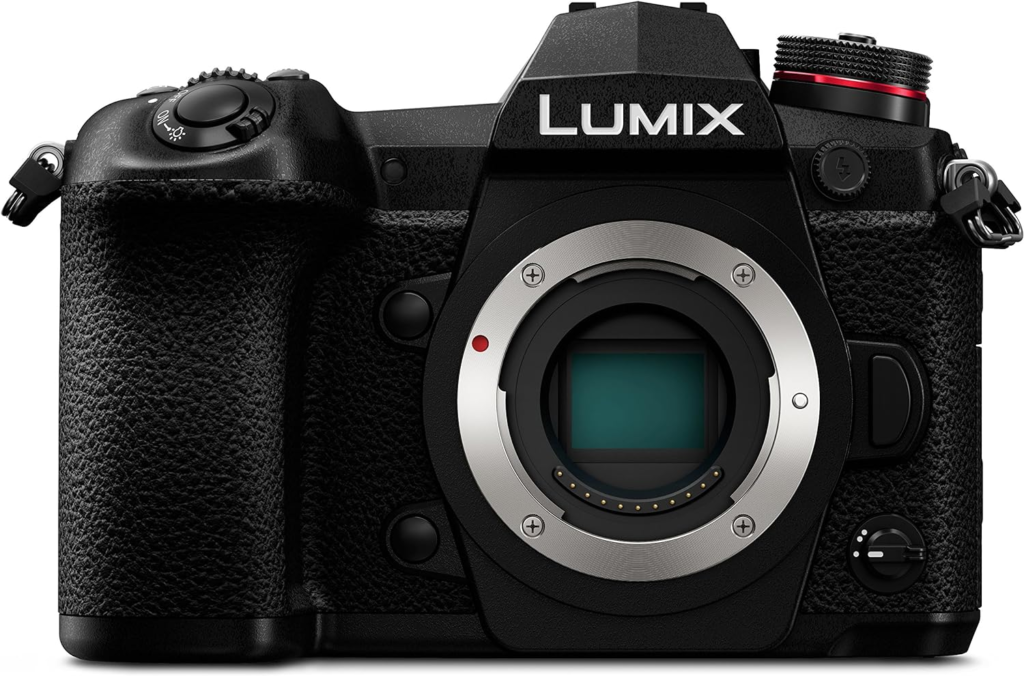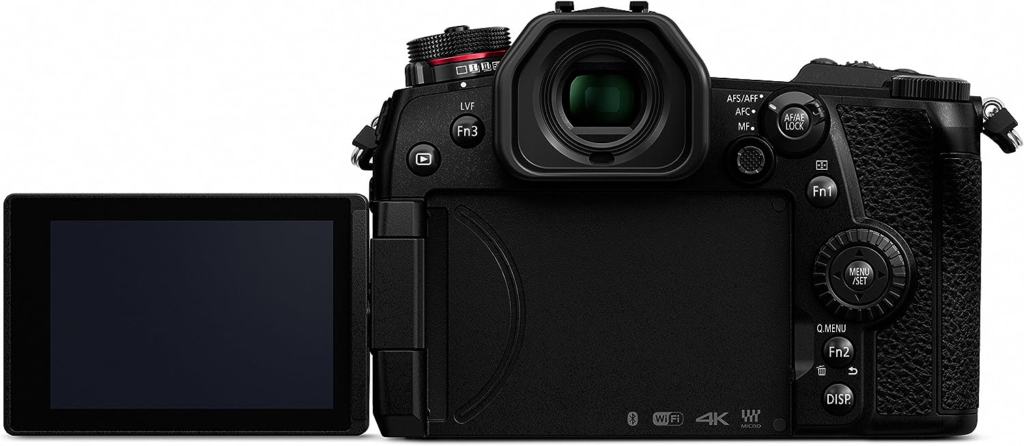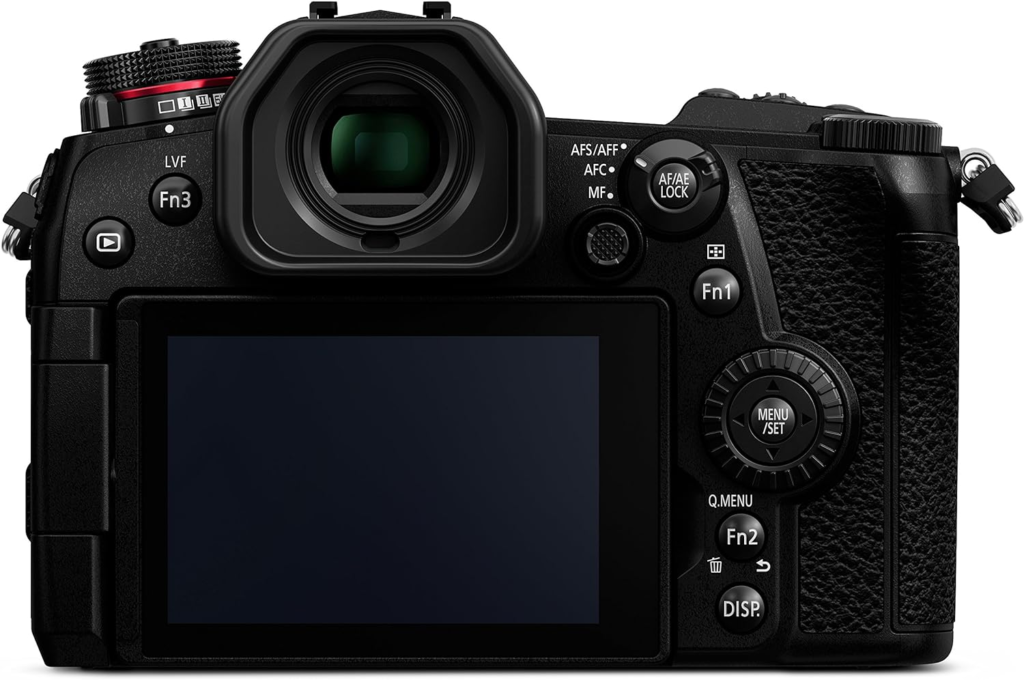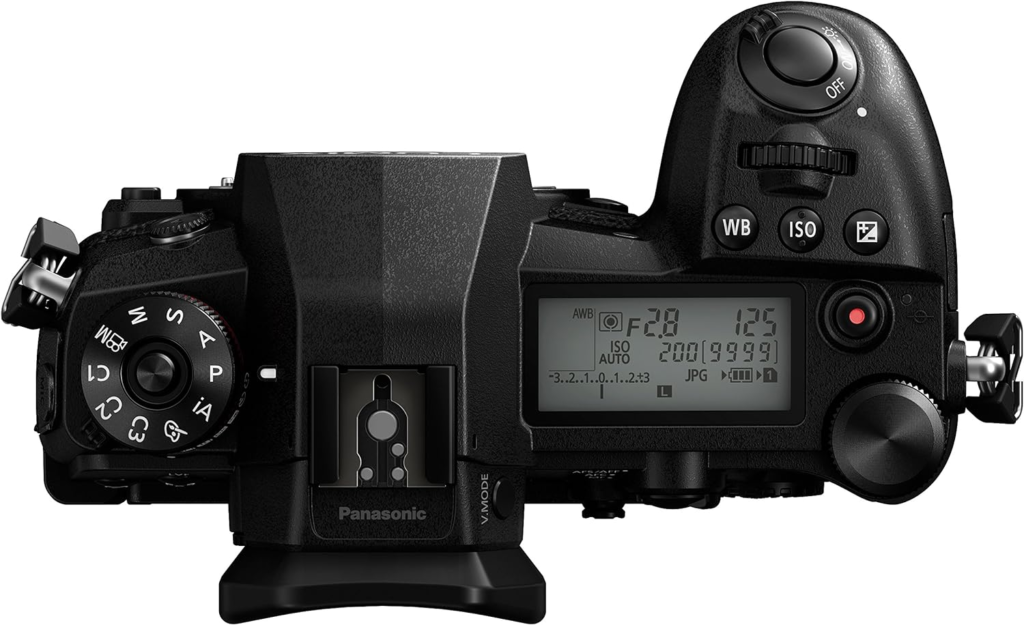When comparing the G9 II to its predecessor, the G9, one can easily see the significant progress made over the five-year gap. The latest model excels as a versatile camera, particularly for wildlife and sports photography. It boasts higher-resolution images, expanded video recording options, including ProRes raw support for external SSDs, a speedier processor, and enhanced phase-detection autofocus. This represents a substantial upgrade from the G9.
In 2023, the G9 II stands out as a highly competitive camera“>camera, especially for video enthusiasts. Additionally, its sensor format and lens selection make it well-suited for wildlife and sports photography.
Check it out on Amazon for more details.
NewForTech Opinion:
Pros:
- Outstanding autofocus system by Panasonic
- Impressive 8-stop in-body image stabilization
- Enhanced engine for improved overall performance
- Attractive price point
Cons:
- The sensor resolution falls short of full-frame alternatives
- Viewfinder resolution remains unchanged from the G9

I’m in a safari truck, wildlife reserve. I hold Panasonic Lumix G9 II with Leica DG Elmarit 200mm F2.8 Power OIS lens. Giraffes scatter on a bushy hillside. It’s an unusually hot 30C (86F) in the UK. Memories of Kenya return, where such trips are a luxury. The camera gear I hold surpasses my past experiences. A giraffe, mostly hidden by a tree, grabs my attention. I raise the G9 II’s 3.69m-dot viewfinder and engage the animal-detection autofocus, despite the challenge.
A quick photo test confirms the new tracking autofocus’s accuracy. The G9 II shows significant progress from the old G9.
Key G9 II Improvements
| Feature | Improvement |
|---|---|
| Sensor | Faster 25.2MP sensor |
| Processor | 2x faster processor, reduced rolling shutter |
| Autofocus | Enhanced phase-detection autofocus |
| Continuous Shooting | Up to 60fps with electronic shutter |
| Up to 14fps with mechanical shutter |
I’m a fan of Panasonic and OM System (formerly Olympus) Micro Four Thirds (MFT) camera systems. They excel in wildlife and sports photography. The G9 II, with five years of advancements, features a 25.2MP sensor and a faster processor, offering improved performance.
The new phase-detection autofocus with subject-tracking modes impresses. Pair animal tracking with customizable autofocus zones for versatile shooting. I need more testing for low-light performance.

Continuous shooting at 60fps with the electronic shutter is impressive, with better control over rolling shutter distortions. The mechanical shutter provides distortion-free shooting at up to 14fps.
Design Features
| Design | Features |
|---|---|
| Body Style | Lumix S5 II-style body |
| Controls | Responsive 8-way joystick |
| Viewfinder | Faster 3.69m-dot EVF |
| Screen Resolution | LCD touchscreen at 1.84m dots |
| Viewfinder Refresh Rate | Blackout-free viewfinder and monitor during bursts |
The G9 II’s design draws inspiration from the Lumix S5 II, offering a comfortable handgrip and familiar controls. Its robust body accommodates the 200mm F2.8 lens. The viewfinder resolution matches the old G9, but the improved refresh rate ensures a seamless experience during burst shooting.

The Panasonic Lumix G9 II starts at $1,599 for the body-only option, making it reasonably priced. Various kit options are available, including the Leica Vario Elmarit 12-60mm F2.8-4 lens for $2,199. Additionally, new lenses, such as the Leica DG Vario-Elmar 100-400mm F4.0-6.3 II ASPH and Leica DG Vario Elmarit 35-100mm F2.8 Power O.I.S, have been announced. Shipping begins in November 2023.
In conclusion, the Panasonic Lumix G9 II impresses with its advancements, making it a strong contender among mirrorless cameras, especially for wildlife and sports photography.
Panasonic Lumix G9 II: Image Quality
| Feature | Specification |
|---|---|
| Sensor | 25.2MP with 100MP High-res multi-shot mode |
| Video Resolution | 5.7K at 60p and 4K at 120p |
| Color Profiles | New Leica Monochrome profile |
| Handheld High-res Mode | Achievable with the faster engine |
The 25.2MP sensor in the MFT format delivers good resolution for Lumix G9 II users. High-res shot mode combines photos for 100MP resolution. Handheld use may require steadiness or a tripod.

Video recording is greatly improved, offering modes similar to the GH6, a top-rated video camera. However, cooling fans are absent, limiting record times.
Several new color profiles, including Leica Monochrome and real-time LUTs, enhance both photo and video capabilities. Users can upload custom color profiles, even for photography.
Verdict

| Improvement Highlights | Impression |
|---|---|
| Sensor Resolution | Improved but not full-frame competition |
| Video Recording | Highly competitive with 5.7K ProRes support |
| Sensor Format and Lens Selection | Suited well for wildlife and sports photography |
| Real-world Performance | Positive initial impressions, especially in daylight |
The G9 II significantly improves upon the five-year-old G9, appealing to current users and newcomers, particularly in wildlife and sports photography. While sensor resolution is enhanced, it falls short of flagship full-frame options. Video recording modes are impressive, including 5.7K ProRes support. The camera’s sensor format and lens selection excel for wildlife and sports photography, making it an attractive choice. Further testing will evaluate low-light performance. Initial impressions from a half-day trial are positive.

Leave a Reply